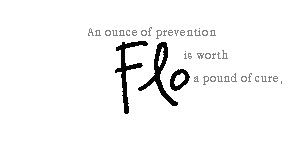How did you do with last weeks' challenge?
It is one of my favorite tips for eating right.
This week's challenge is:
All sugars (whether natural or processed) are a type of simple carbohydrate that your body uses for energy. Fruits, vegetables and dairy foods all naturally contain sugar (fructose, glucose, and lactose). "Added Sugar" refers to sugars and syrups added to foods during the process. Desserts, sweets, treats (store-bought or homemade), candy, soda, sports drinks, sugary cereal are all top sources of added sugar. Agave nectar, honey, and maple syrup are also added sugars.
These "Added Sugars" can wreak havoc on your body. They contain extra calories to your diet and provide little nutritional value. In addition, added sugar is often found in foods that also contain solid fats. Sugar increases your triglycerides levels (type of fat in the bloodstream and fat tissue), which can increase your risk for heart disease. Many sugar-a-holics substitute sugar for nutritious meals, meaning they are missing out on important nutrients. There is usually no single cause for being overweight or obese. But added sugar is part of the the problem.
Identifying added sugar can be confusing. Most people look at the Nutrition Facts part of the label for the total number of grams of sugar in a serving of the product. It's important to realize, however, that the amount shown includes natural sugars found in certain ingredients, such as grain, fruit and milk. So, the only reliable way to identify added sugar is to look at the ingredient list. Ingredients are listed in descending order by weight. If you see sugar listed among the first few ingredients, the product is likely to be high in added sugar. Know that sugar goes by many different names.
Check for ingredients ending in "ose" — that's the chemical name for many types of sugar, such as fructose, glucose, maltose and dextrose. Here's a list of other common types of added sugar:
- Cane juice and cane syrup
- Corn sweeteners and high-fructose corn syrup
- Fruit juice concentrate and nectars
- Honey
- Malt syrup
- Molasses
The recommendation for added sugar is no more than 100 calories a day for most women and no more than 150 calories a day for most men. That's about 6 teaspoons of "added sugar" for women and 9 for men.
Unfortunately, most Americans get more than 22 teaspoons — or 355 calories — of "added sugar" a day, which far exceeds these recommendation!
Source: My Nutrition 101 textbook
Mayo Clinic



No comments:
Post a Comment